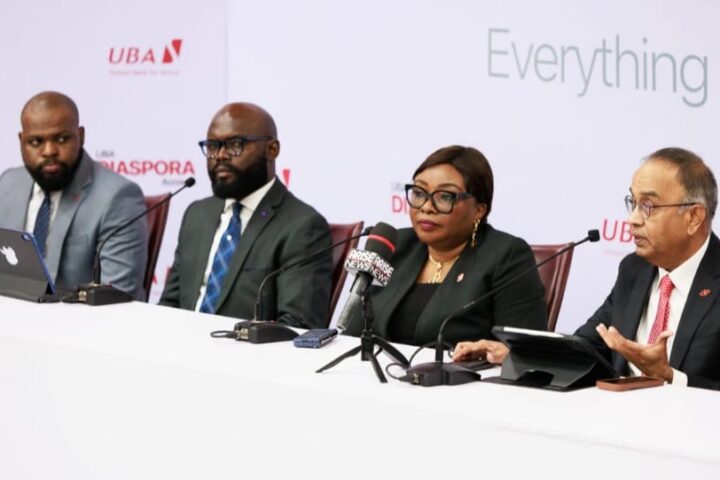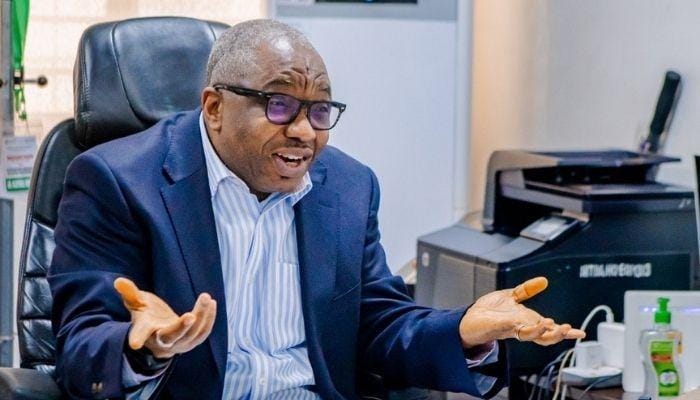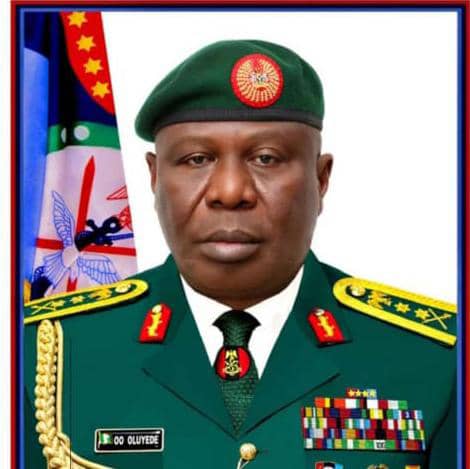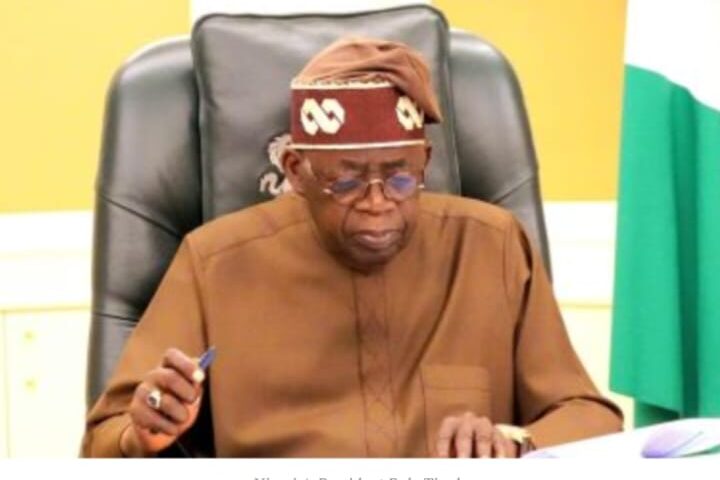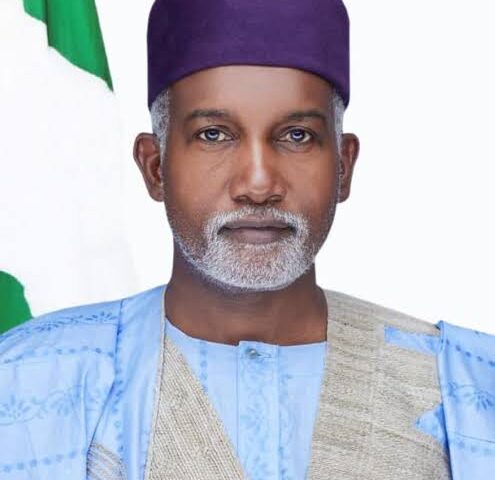No doubt, one of the salutary measures put in place by the Central Bank of Nigeria to promote financial inclusion and narrow the growing level of unbanked Nigerians was the launch of
Central Bank Digital Currency (CBDC), also known as e-Naira on October 25th, 2021 by President Muhammadu Buhari.
President Buhari said the digital currency will boost the country’s projected Gross Domestic Product (GDP) by $29 billion in the next 10 years.
Observers said the ambitious launch couldn’t have come at a better time than when the country needed the requisite boost from the lower ladder of global financial inclusion in order to match its stature among comity of nations
For instance, Nigeria is regarded as one of the top three unbanked countries in the world, with 40 per cent of its population without a bank account and out of the 59 million unbanked adults, 73 per cent do not have the requisite documents to open a tier-three bank account.
Roadmap
The Governor of the Central Bank of Nigeria (CBN), Mr. Godwin Emefiele, had unveiled a 5-year Policy Thrust of the apex bank, spanning 2019 – 2024 in view of the role of digital technologies in shaping every aspect of human endeavour, particularly the country’s payment landscape, and determined to make Nigeria a financial hub in Africa.
He explained that one of the targets of the roadmap was to develop a “robust payments system infrastructure that will increase access to finance for all Nigerians thereby raising the financial inclusion rate in the country, and “continue to work with the Deposit Money Banks to improve access to credit for not only smallholder farmers and MSMEs but also consumer credit and mortgage facilities for bank customers”.
Emefiele had also said the central bank’s intervention support would also be extended to the youth population who possess entrepreneurship skills,adding that the bank’s agenda is well in line with the administration of President Muhammadu Buhari to among other things develop a “thriving digital economy” to “create employment opportunities for our teeming population and support in lifting millions of Nigerians out of poverty.
Besides,the current administration believes that through the National Digital Economy Policy and Strategy (NDEPS), a digital economy will accelerate the attainment of the country’s key objectives of improving security, reducing corruption, and expanding the economy.
Emefiele,who recently expressed optimism that the central bank will meet the 95 per cent of adult financial inclusion target by 2024, had been spearheading the implementation of various programmes towards achieving these noble objectives set out in the five-year plan.
e-Naira Magic, Expectations
e-Naira seeks to address some of the challenges confronting monetary authority including inflation, by reducing the amount of physical cash in circulation and drastically cutting down the cost of currency production.The CBN boss said that the e-Naira would make a significant positive difference to Nigeria and Nigerians, as it would ease their participation in the global digital economy.
He said:“Specifically, the e-Naira is expected to enhance financial inclusion, support poverty reduction, enable direct welfare disbursement to citizens, support a resilient payments ecosystem, improve availability and usability of central bank money, facilitate diaspora remittances, reduce the cost of processing cash, and reduce cost and improve efficiency of cross-border payment among others.The eNaira was also developed to provide Nigerians with a cheap, safe and trusted means of payment. Unlike the offline payments channels like agent networks, USSD, wearables, cards and near field communication technology, the e-Naira would give access to financial services to underserved and unbanked segments of the population. Innovative products and services built on the eNaira would enhance Nigerians’ participation in the digital economy and promote further development of a burgeoning Fintech ecosystem.”
He assured Nigerians of the safety and scalability of the CBDC, emphasizing on the journey to create a digital currency for Nigeria began in 2017.
Emefiele said with growing interest in CBDC around the world, the CBN had commenced extensive study, consultations, identification of use cases, and the testing of the CBDC concept in a sandbox environment as far back as 2017, stressing that the objective of the research was to establish a compelling case for the adoption of a digital currency in the country to enable a more prosperous and inclusive economy for all Nigerians.
He added that following the completion of the preliminary work, the researchers and experts at the CBN were able to establish that a digital currency will drive a more cashless, inclusive, and digital economy as well as complement the gains of previous policy measures and the fast-growing payment platforms.
He explained that the CBN decided to implement its own CBDC and to name the digital currency e-Naira, with the expectation that the innovation would make a significant positive difference to Nigeria and Nigerians.
Emefiele said the eNaira would support a resilient payment ecosystem, encourage rapid financial inclusion, reduce the cost of processing cash, enable direct and transparent welfare intervention to citizens, and increase revenue and tax collection.He said the e-Naira would also facilitate diaspora remittances, reduce the cost of financial transactions, and improve the efficiency of payments.
Emefiele added:“Therefore, the eNaira is Nigeria’s CBDC and it is the digital equivalent of the physical naira. As the tagline simply encapsulates, the eNaira is the same naira with far more possibilities.The eNaira – like the physical naira – is a legal tender in Nigeria and a liability of the CBN. The eNaira and naira will have the same value and will always be exchanged at one naira to one eNaira.”
Positive Start
The Central Bank of Nigeria’s digital currency,e-Naira, the website reportedly recorded over one million hits in just 24 hours after it went live during its launch last year.
The website has gone live one week to its official launch date.CBN had announced that it will officially launch the e-Naira on October 4th. This is after the apex bank cancelled the earlier October 1st date due to activities of the country’s independence day celebration.
Besides,between the few weeks of going live and when the digital currency was officially launched, Mr. Emefiele disclosed that the e-Naira platform witnessed overwhelming interests and encouraging responses from Nigerians and other parties across the world with over 2.5 7 million daily visits to the website.
He added that 33 banks were fully integrated and live on the platform; N500 million successfully minted by the bank; N200 million issued to financial institutions; and over 2,000 customers on-boarded.
According to him,since the launch, customers who download the e-Naira Speed Wallet App are able to onboard and create their wallet; fund their e-Naira wallet from their bank accounts; transfer e-Naira from their wallet to another wallet; and make payment for purchases at registered merchant locations
Challenges
The International Monetary Fund (IMF) had observed that while the e-Naira has the potentials for Financial Inclusion and boost Diaspora remittances, the CBN must closely watch its operations as it could pose risks to Nigeria’s financial stability.
There were also attempts by some criminal elements to defraud unsuspecting members of the public, using fake e-Naira twitter handle. CBN’s eagle-eyed IT experts discovered that some unscrupulous elements had created a fake twitter handle with a view to defrauding innocent members of the public.
The Director, Corporate Communications, Mr. Osita Nwanisobi, blamed the fake e-Naira handle on the activities of criminals and warned the Nigerian public to guide against falling prey to the antics of such people.
Improved Campaigns
The Central Bank of Nigeria (CBN) has unveiled the *997# USSD code in Kano to reduce the use of cash in commercial activities in the country.
The Deputy Governor Operations of the CBN, Mr. Foladun Shinobi described the unveiling of the code as another milestone in delivering digital financial services to Nigerians and enabling their participation in the global digital economy.
He further explained that the e-Naira presents an opportunity to offer Nigerians endless possibilities in using financial services adding that it is captured by the slogan “Same Naira, More Opportunities”.
“Today marks a significant milestone towards achieving the objective of the second phase of the project which is to drive financial inclusion by onboarding unbanked and underserved users leveraging the offline channels.Specifically, we are here to launch the e-Naira USSD channel using *997# for onboarding and transactions.The choice of the USSD as the premium offline channel for the eNaira is founded in an understanding of the peculiarities of our economy.
He further explained the need for the e-Naira to be unveiled describing it in terms of reaching out to 150 million Nigerians that own mobile phones.
Besides,the Central Bank of Nigeria, CBN, in conjunction with the Bankers Committee has deployed e-Naira enrolment and sensitization campaigns to two major markets in Lagos.The enrolment campaigns was held at the Balogun market, Lagos Island and Tejuosho market, Yaba, featured instant eNaira app downloads and enrolment and presentation by eNaira Brand Ambassador and Movie star Gabriel Afolayan, who explained how traders can use the digital currency to facilitate payment for goods and services.
Urging Nigerians to accept the CBN digital currency, Afolayan described the eNaira as “a very good platform for customers and buyers.”
He said, “eNaira is the way to go now because a lot of people don’t want to move around with liquid cash.It’s mainly for people that are into business because sometimes even when you order stuff and the money doesn’t get delivered on time, eNaira will solve that problem with just sharing code between the buyer and the seller as well.So right now, in 2022 and beyond, eNaira is the way to go; that is the easiest way to buy stuff without having to look at your back that you have somebody who wants to steal from you.”
Robust Transactions Volume
The CBN Governor announced that transactions on the e-Naira platform had hit N4 billion almost a year to its launch.
At the grand finale of the e-Naira Hackathon, in Abuja recently,Emiefele said: “Since the launch of this great initiative, the e-Naira has reached 840,000 downloads, with about 270,000 active wallets comprising over 252,000 consumer wallets and 17,000 merchant wallets.In addition, volume and value of transactions on the platform have been remarkable, reaching above 200,000 and N4 billion, respectively.”
According to him,despite the successes recorded on the initiative the bank, in collaboration with private sector operators has started the second phase of the e-Naira.
He added: “Notwithstanding this appreciable progress, the second phase of the project has begun and it is intended to drive financial inclusion by on-boarding unbanked and underserved users leveraging offline channels. Hence, greater success is envisioned for the project with phase two expected to deliver more gains with a target of about 8,000,000 active users based on estimations using the diffusion of innovation model.”
Mr. Emefiele said that CBN remained strategic in charting the future of the Naira by balancing innovation with stability of the currency.
Second Phase With Optimism
In the second phase of the e-Naira initiative, Mr. Emefiele and his team are working to deepen the volume of transactions by bringing more Nigerians onboard through making the digital currency more attractive to merchants and other members of the public.He also rolled out a reward scheme for e-Naira Merchants.
Flagging off the Abuja e-Naira Merchants Mega-event in Abuja, the governor of the CBN announced a 50 percent service charge subsidy for the merchants, in addition to providing them with promotional materials.
He said:“Merchants such as petrol stations, supermarkets, e-Commerce and other businesses not only have significant roles to play in driving the adoption of the e-Naira, but can also leverage on the opportunities offered by e-Naira to improve cash management and make significant savings in operating cost.
“More specifically, benefits to the merchants include reduced cash handling costs, elimination of failed transactions, instant settlement, increased speed of transactions, improvement in records keeping and elimination of challenges associated with giving change to customers, amongst others.”
The second phase is also expected to deliver more gains with a target of about 8,000,000 active users based on estimations using the diffusion of innovation model.
Measuring e-Naira Impacts On Macro economy
Experts said the adoption of e-Naira has continued to yield a positive impact even within the shortest time.
For instance,in November 2021, the apex bank said it slashed expenditure on currency printing from N75.52 billion in 2019 to N58.61 billion in 2020, representing a decrease of N16.91 billion or 28.84 per cent compared to the preceding year. The annual report by the apex bank’s Currency Operations Department (COD), said currency printing gulped N64.04 billion in 2018.
It explained that the reduction was in line with the policy objective of the CBN Governor, Mr. Godwin Emefiele to cut the cost of printing banknotes and cash management, in the country.
Observers said CBDC has become instrumental in achieving price stability is in line with the policy to further reduce the cost of printing the Naira as well as curb inflation.
Besides, observers said the CBN’s reforms in the electronic payment system continue to impact the economy positively by facilitating the migration to electronic transactions which will eventually lead to full digitization.
In April 2021, the National Bureau of Statistics (NBS), reported that a total volume of 3,464,811,083 transactions worth N356.47 trillion was recorded on electronic payment channels in the fourth quarter of 2020 (Q4 2020).Instructively, online transfers dominated the volume of transactions with over 2.23 billion volume of transactions valued at N120.27 trillion in the review period.
Little wonder, the Buhari Media Organisation (BMO), described the Central Bank of Nigeria (CBN’s) strategy of an efficient payment system through the introduction and implementation of the e-Naira is a laudable effort that is contributing to the success of our digital economy.
According to the Buhari Media Organisation (BMO), the Central Bank Digital Currency (CBDC), also known as e-Naira, is one of the Federal Government’s solutions to foreign exchange challenges that surprised the global economic leaders.
Its Chairman Niyi Akinsiju and Secretary Cassidy Madueke, BMO, noted that while many countries are still considering the importance of a sovereign currency, we’ve gone ahead to pioneer it. “What we have now is a multi-platform transactional economy; and not just that, we are now running a strong electronic platform economy, digital transactional economy and a crypto-based digital currency”.
“Alongside digital innovations, digital currencies could foster economic growth through better economic activities, increase remittances, improve financial inclusion and make monetary policy more effective”.
The group added that “the e-Naira, being the first central bank digital currency in Africa, has attracted much attention and countries across Africa are coming to Nigeria to understudy its The Central Bank of Nigeria (CBN’s) strategy of an efficient payment system through the introduction and implementation of the e-Naira is a laudable effort that is contributing to the success of our digital economy.
According to the Buhari Media Organisation (BMO), the Central Bank Digital Currency (CBDC), also known as e-Naira, is one of the Federal Government’s solutions to foreign exchange challenges that surprised the global economic leaders.
The group added that “the e-Naira, being the first central bank digital currency in Africa, has attracted much attention and countries across Africa are coming to Nigeria to understudy its technicalities.
BMO highlighted that aside from making life easier for the average Nigerian, “e-Naira has made transactions simpler than what it used to be and also generated tax from merchants registered on the app. With more registrations and participation we expect more revenue to be generated technicalities.
“Most countries in the high G7 cadre, the IMF and the World Bank, were not expecting this from us. And from Nigeria comes the digital currency that people are now buying into: we have more banks facilitating and more traders across the world engaging in it.The beauty of this is that it is not just a domestic transactional platform, it also avails international transaction, one can transact from any location with a naira account at an official exchange rate. As CBDC gets bigger, emphasis will gradually move away from hard currency (dollar) to digital currency”.
Besides,the PricewaterhouseCoopers (PwC) in its 2022 CBDC Global Index and Stablecoin Overview, gave the eNaira a retail index value of 95,while the country also ranked number one in Africa. The index is based on a Banking for International Settlements (BIS) working paper, the World Bank, and PwC analysis.
A financial analyst,Taiwo Folarin told PremiumNews that the launch of e-Naira by the Central Bank of Nigeria, has changed improved financial inclusion deficit in the country and impacted the country’s macro economy positively.
He commended the apex bank for the initiative and implored the bank not to rest on its oars in creating increased awareness about the initiative and deepening financial inclusion among Nigerians in the country’s economic environment.



